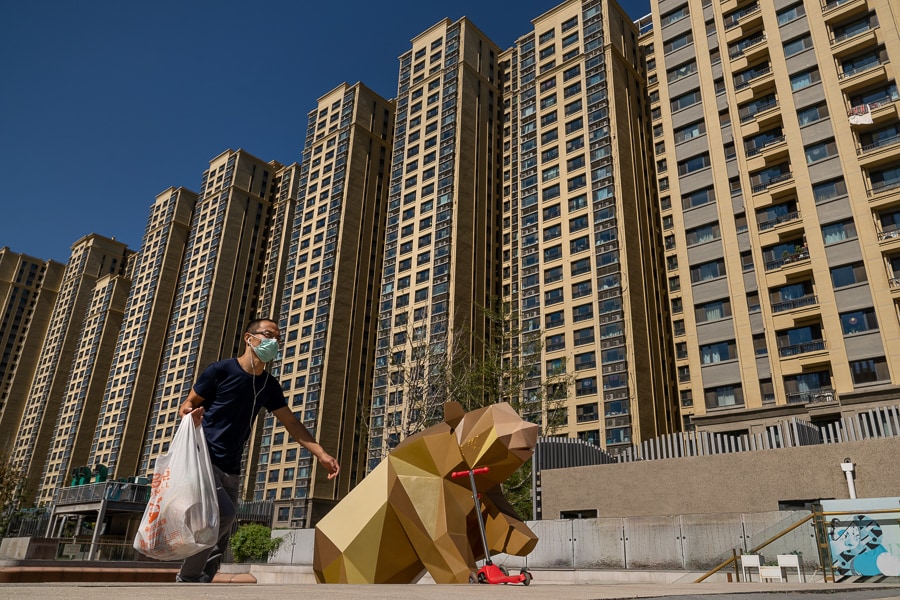
Evergrande crisis shows cracks in China's property market
Evergrande's troubles have raised fears that China's residential and commercial property market, which drives up to a third of the world's second-largest economy, could crumble
 A man walks past a bear-like sculpture at Evergrande City Plaza shopping center on September 22, 2021 in Beijing, China. Evergrande, China's largest property developer, is facing a liquidity crisis with total debts of around $300 billion. The problems faced by the company could impact China’s economy, and the global economy at large; Image: Andrea Verdelli/Getty Images
A man walks past a bear-like sculpture at Evergrande City Plaza shopping center on September 22, 2021 in Beijing, China. Evergrande, China's largest property developer, is facing a liquidity crisis with total debts of around $300 billion. The problems faced by the company could impact China’s economy, and the global economy at large; Image: Andrea Verdelli/Getty Images
Angry homebuyers are waiting on as many as 1.6 million apartments to be completed. Suppliers of cement, paint and rebar are owed more than $100 billion in payments. Workers are panicking that loans they made to their employer cannot be repaid.
Evergrande Group was once China’s most prolific developer, its cranes dotting China’s skylines. But now it is buckling under the weight of more than $300 billion in debt. What’s at stake is more than the fate of a single company: Evergrande’s troubles have raised fears that China’s residential and commercial property market, which drives up to a third of the world’s second-largest economy, could crumble.
The panic set off a global chain reaction Monday, pushing stock markets down as shares of Chinese homebuilders and large multinational companies tumbled. On Tuesday, Evergrande’s shares and bonds fell again after a dire forecast about its fate from S&P Global Ratings: “We believe Beijing would only be compelled to step in if there is a far-reaching contagion causing multiple major developers to fail and posing systemic risks to the economy.”
On Thursday, Evergrande has an $83.5 million interest payment it is likely to miss, which would cause more market turmoil.
A disorderly collapse for a company of Evergrande’s size could have ripple effects in China and beyond, including scaring off investors that have bet tens of billions of dollars on both the company and the property sector’s success.
©2019 New York Times News Service







